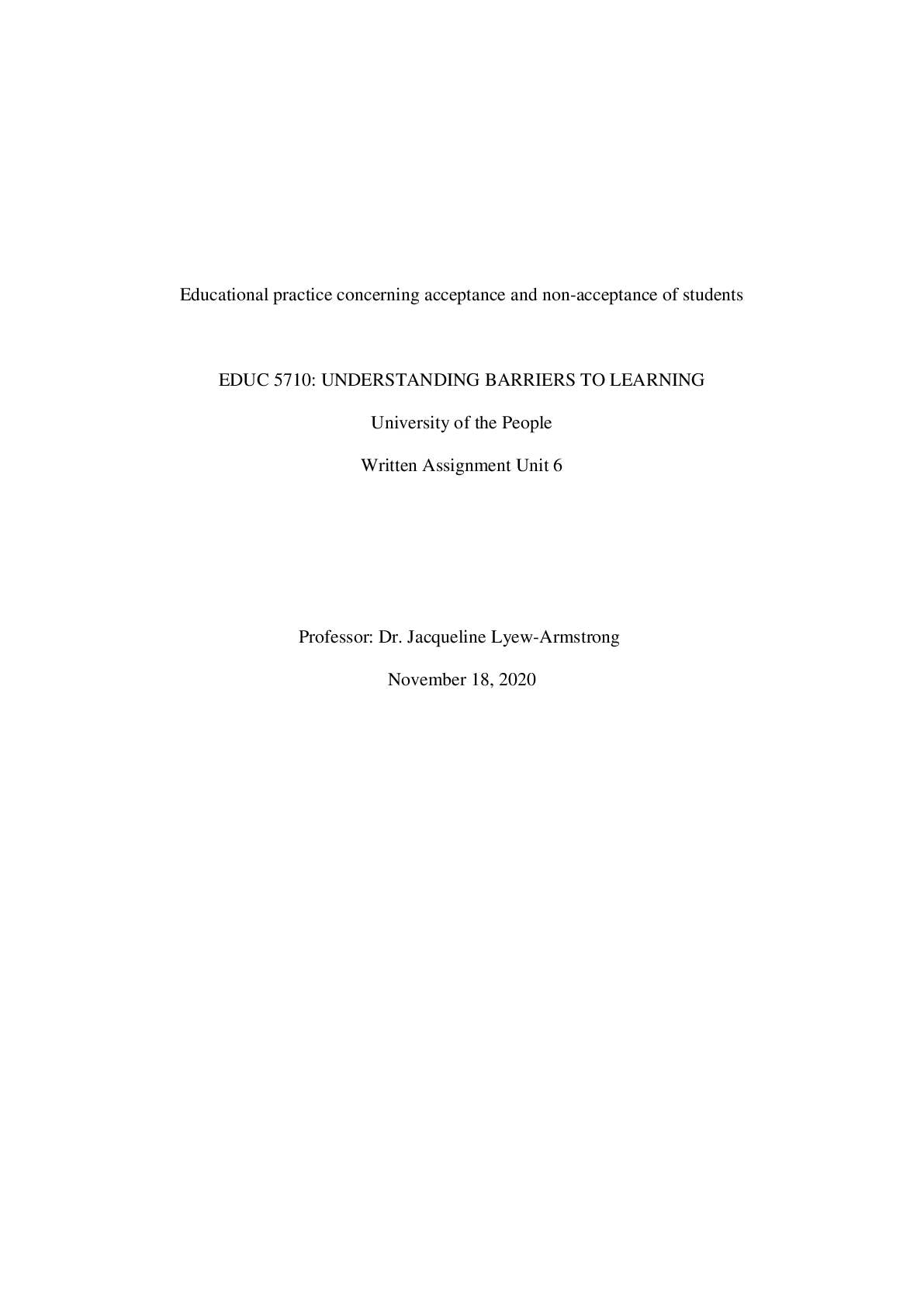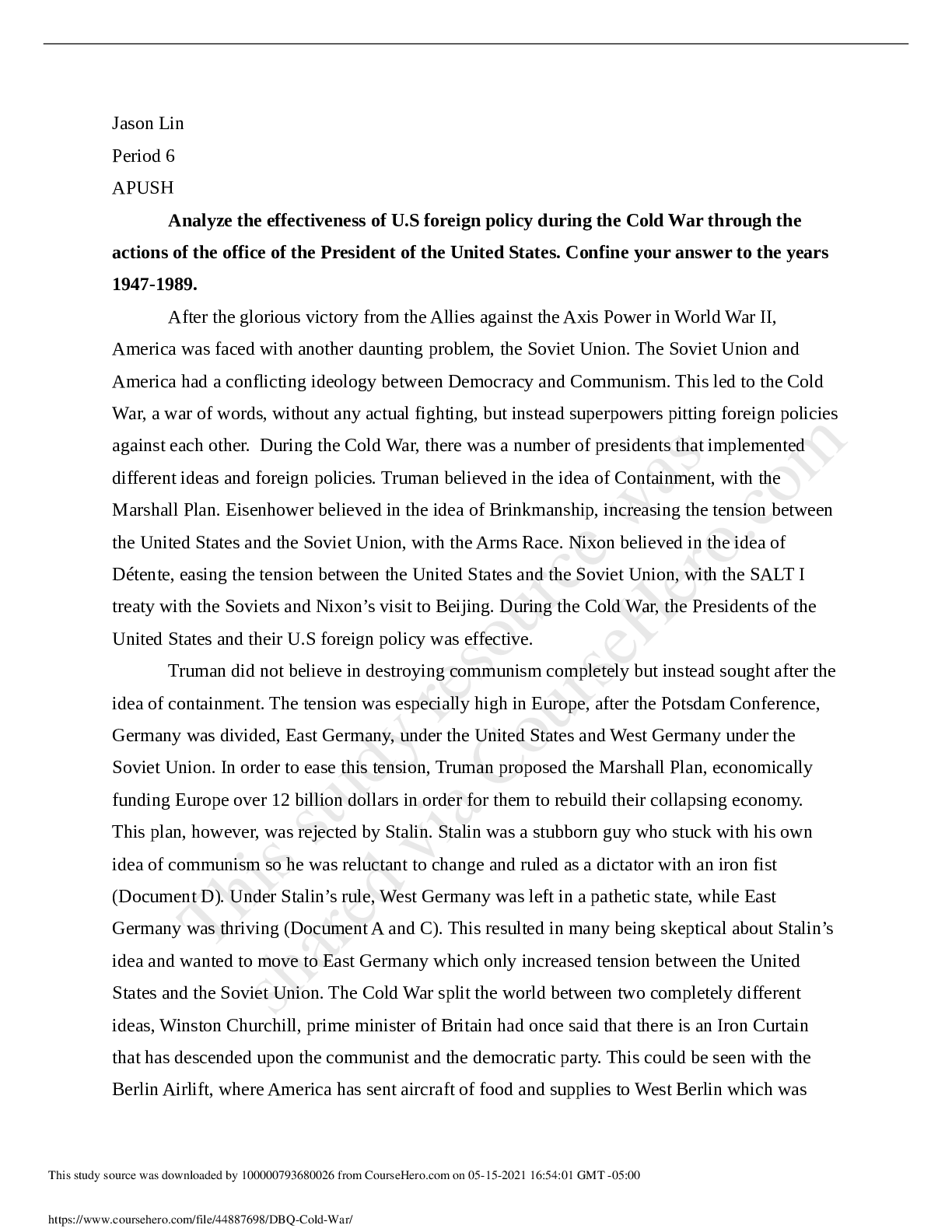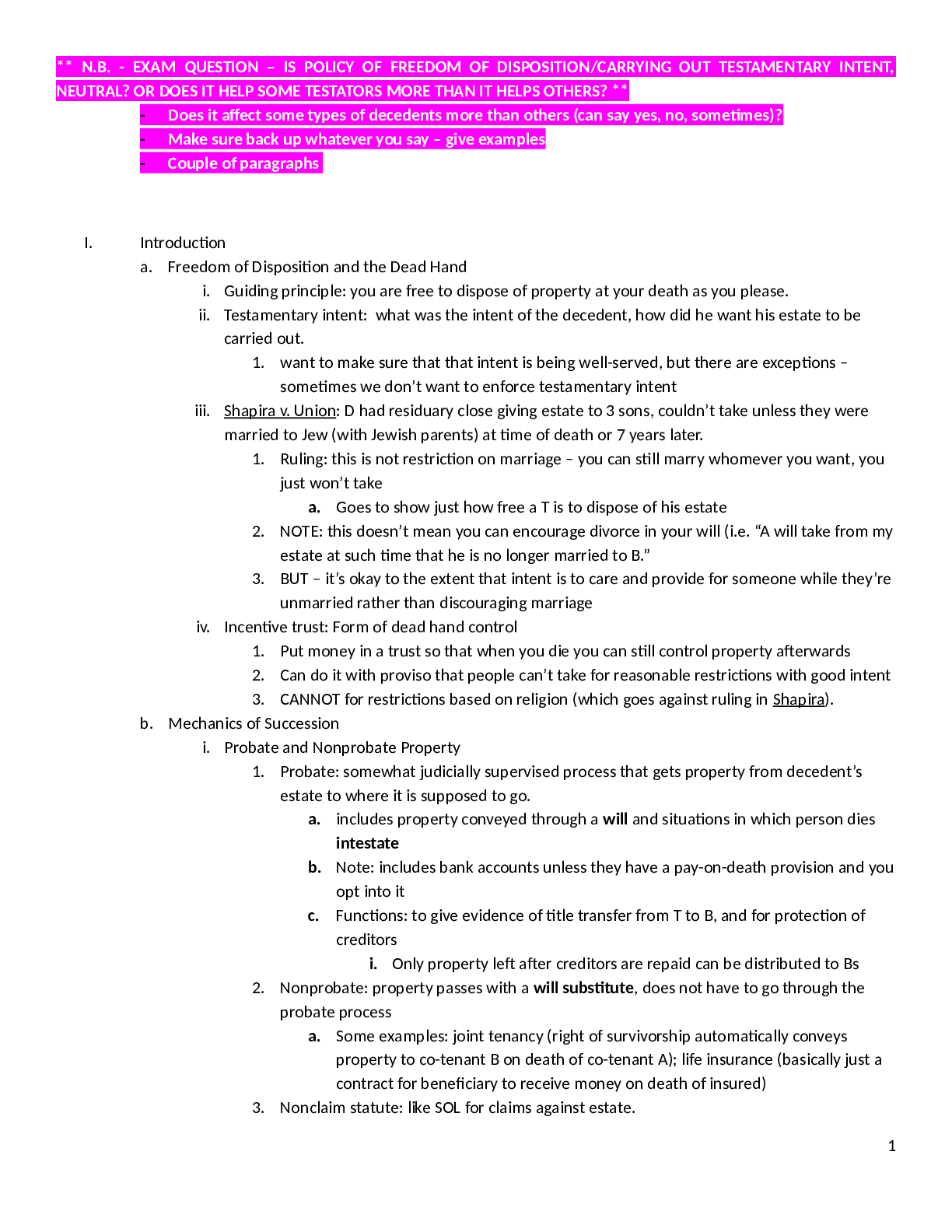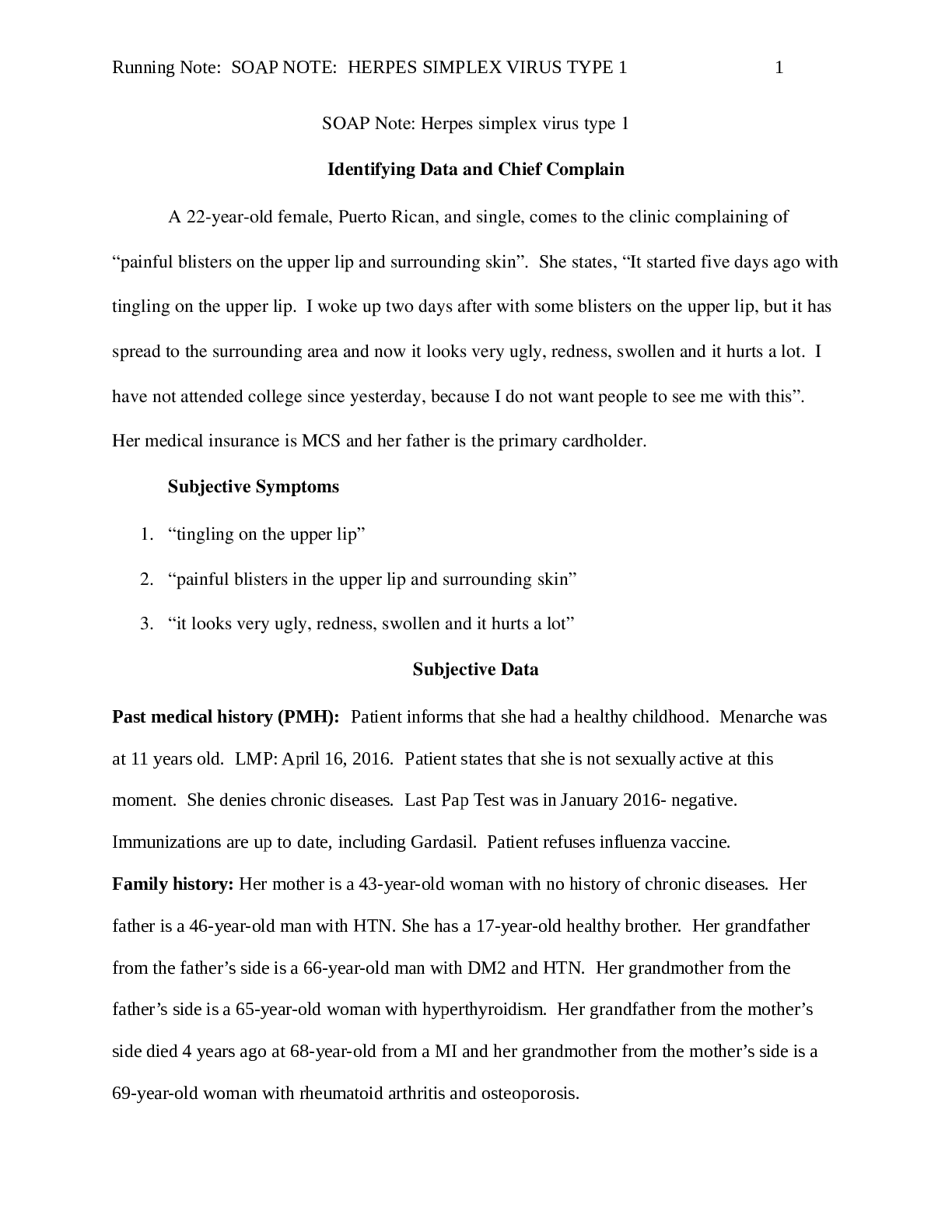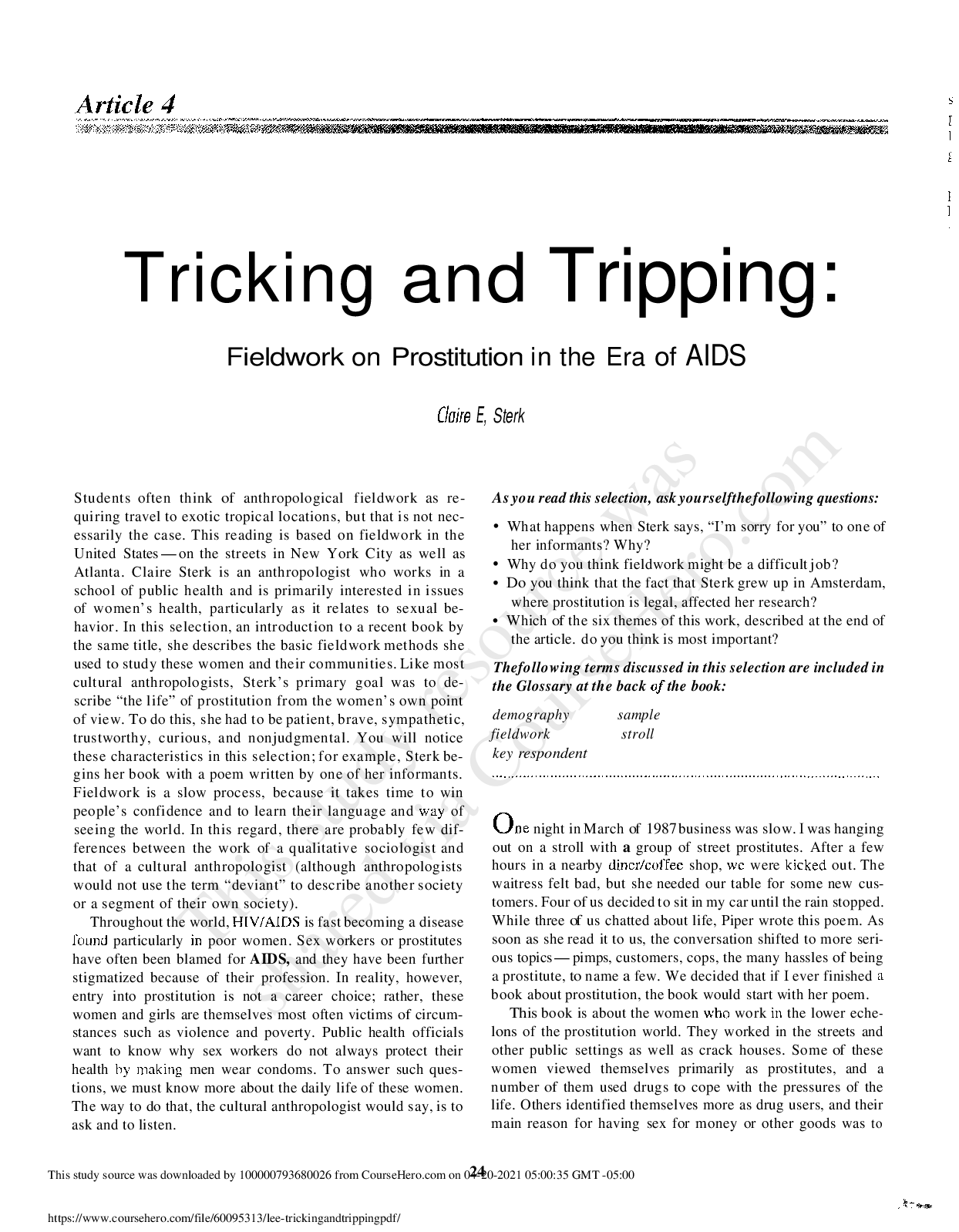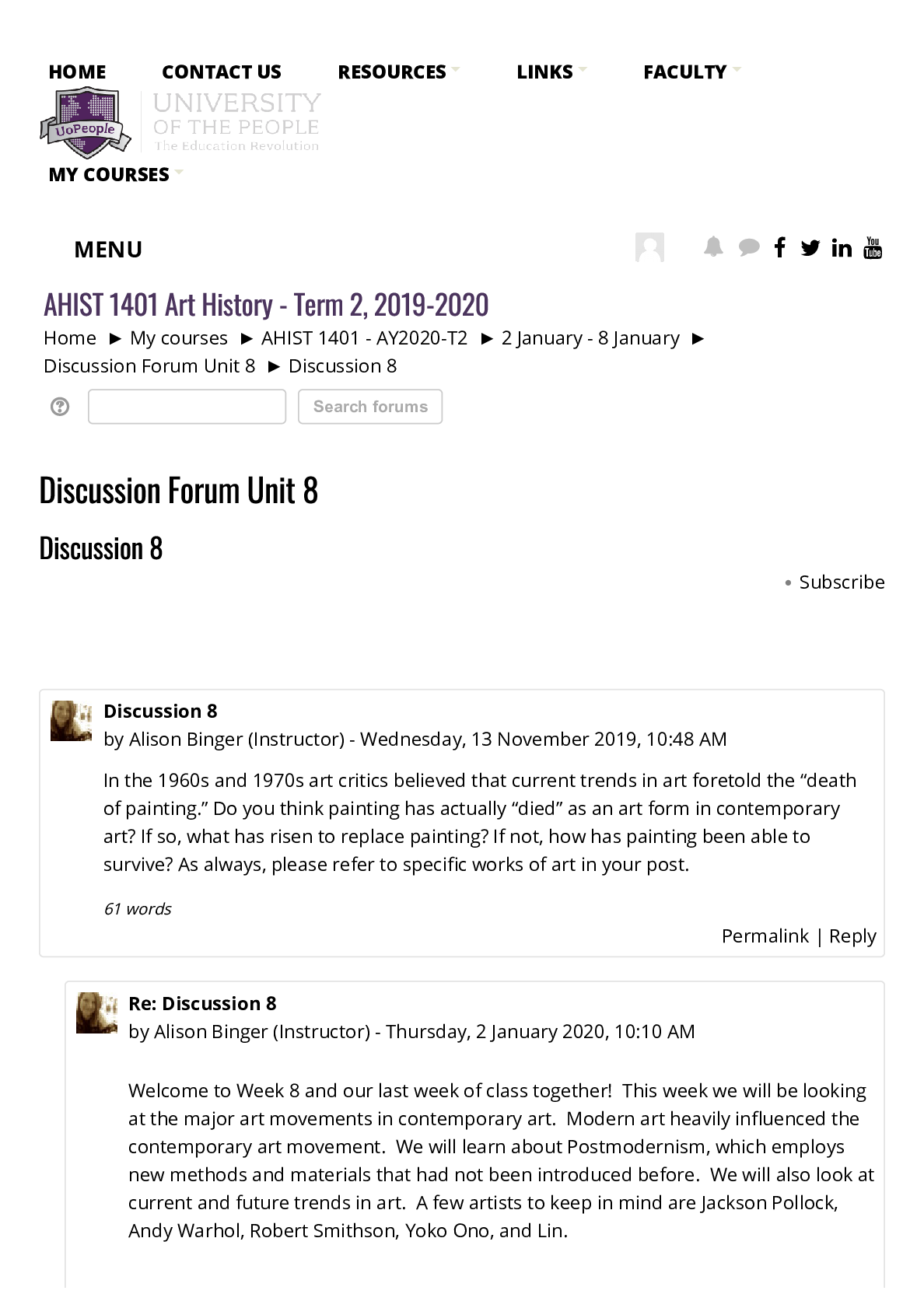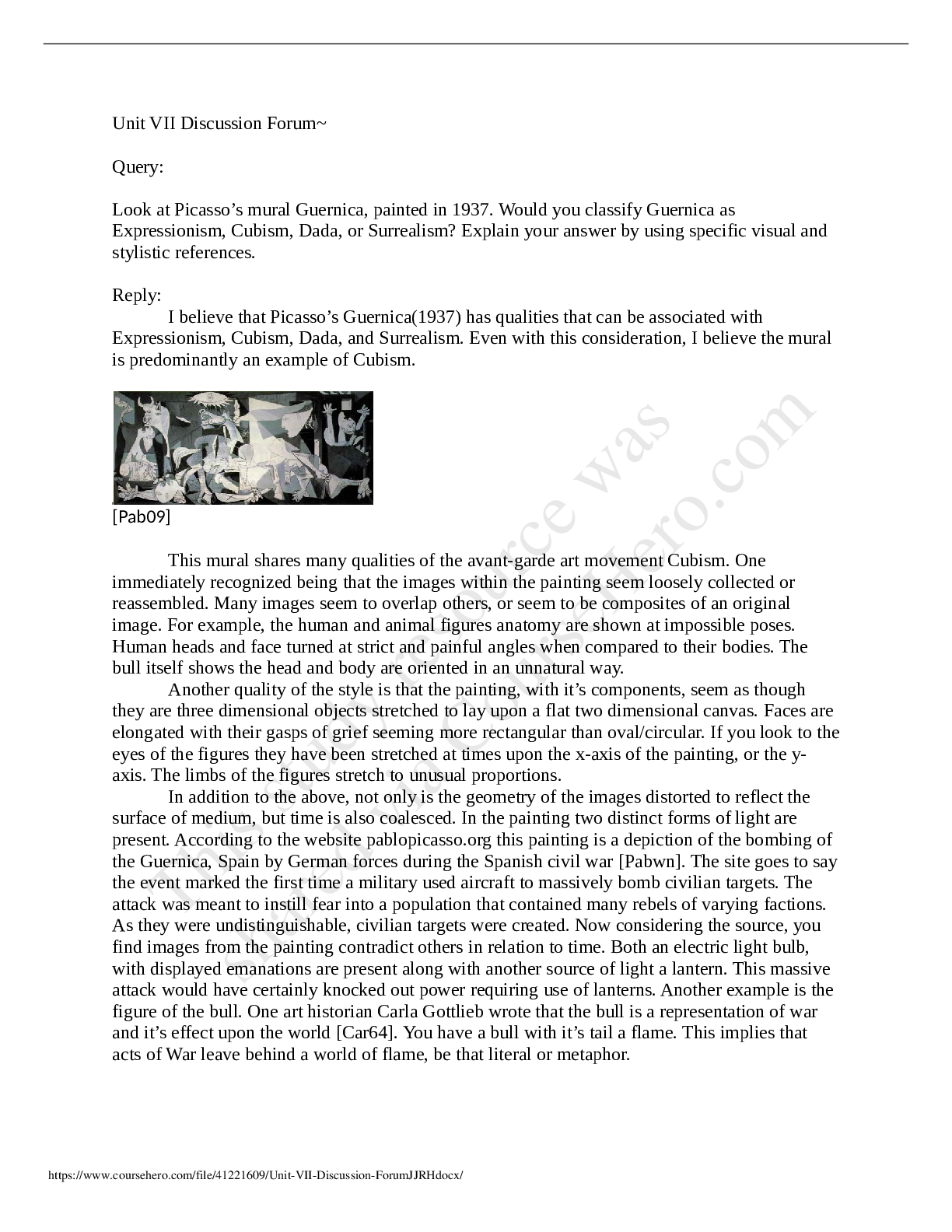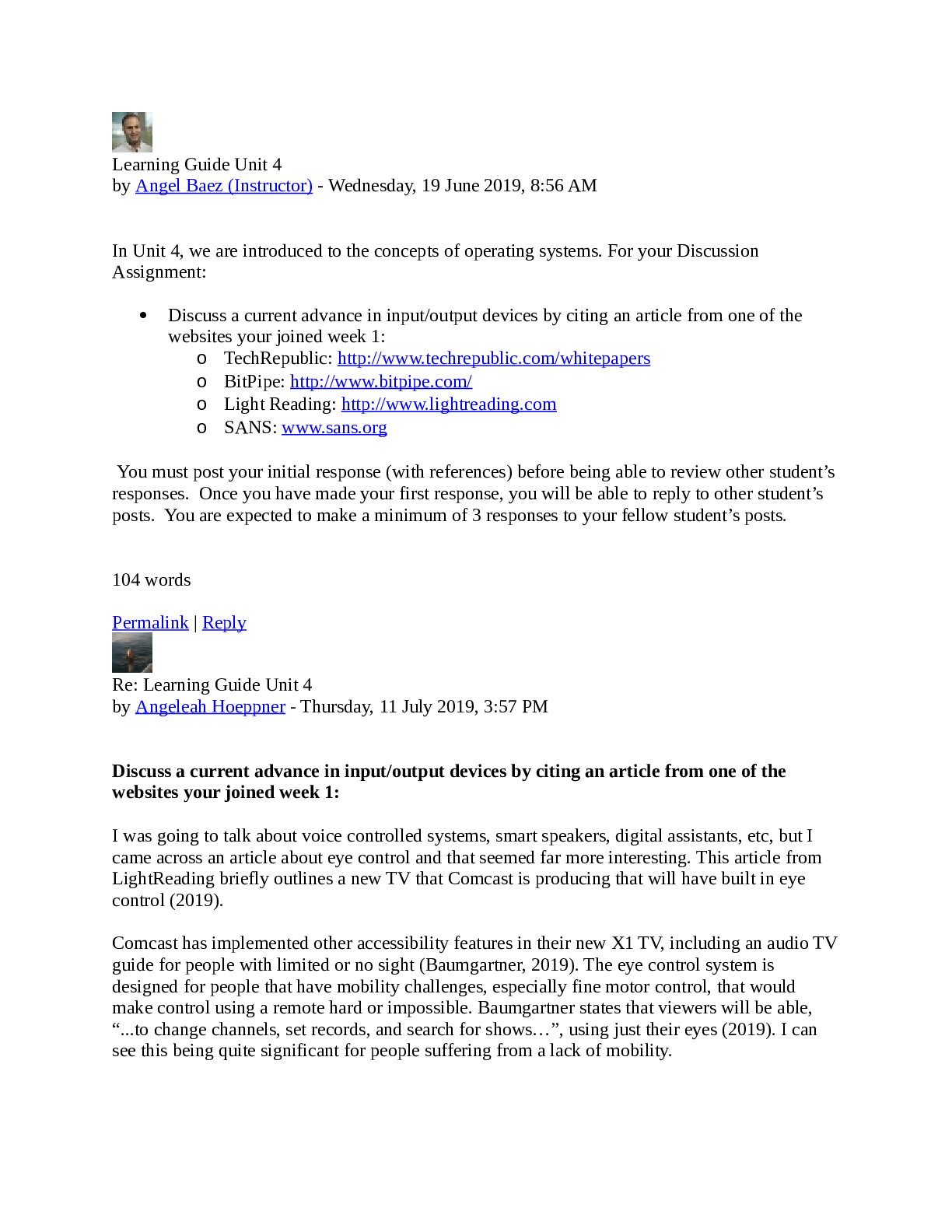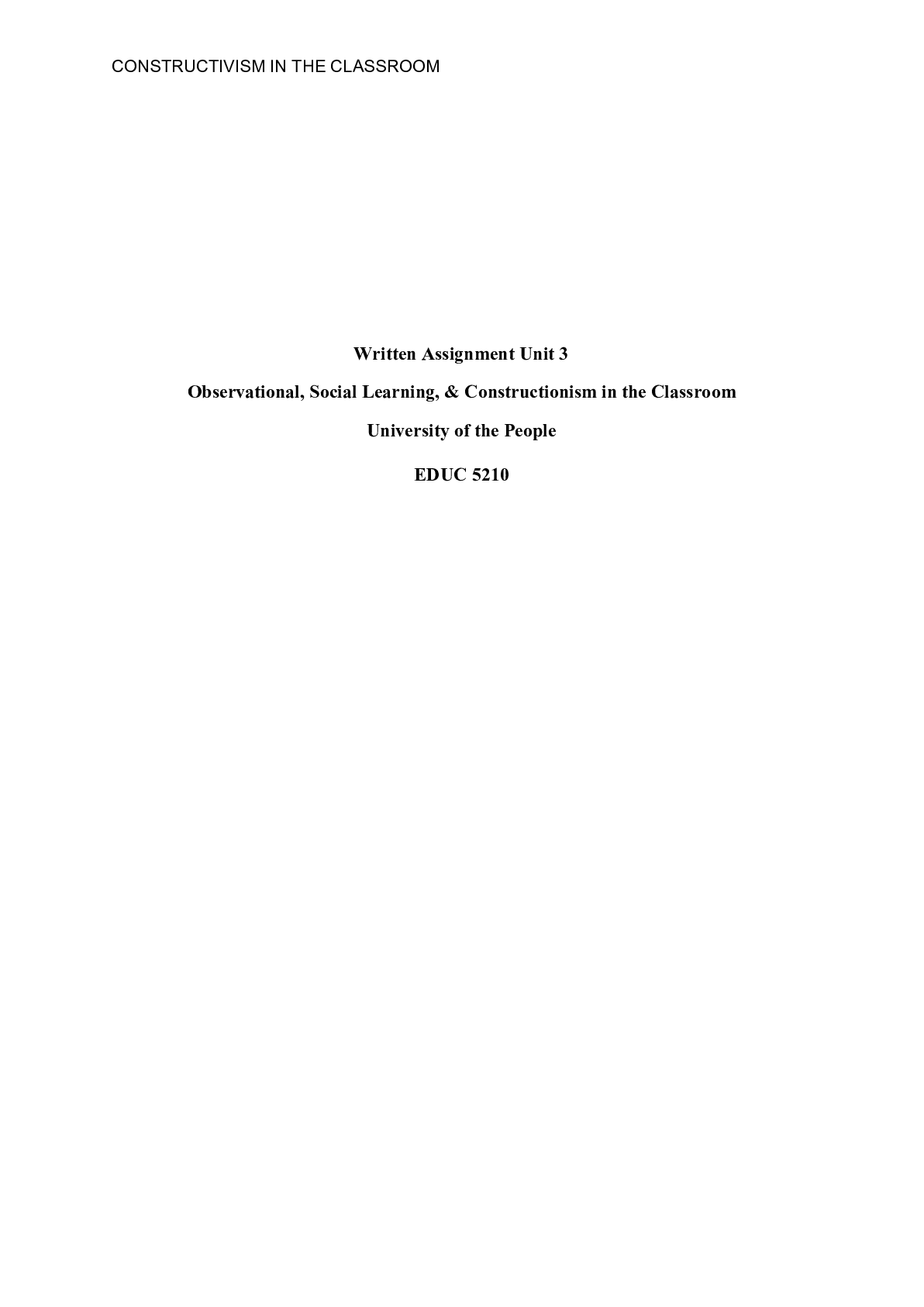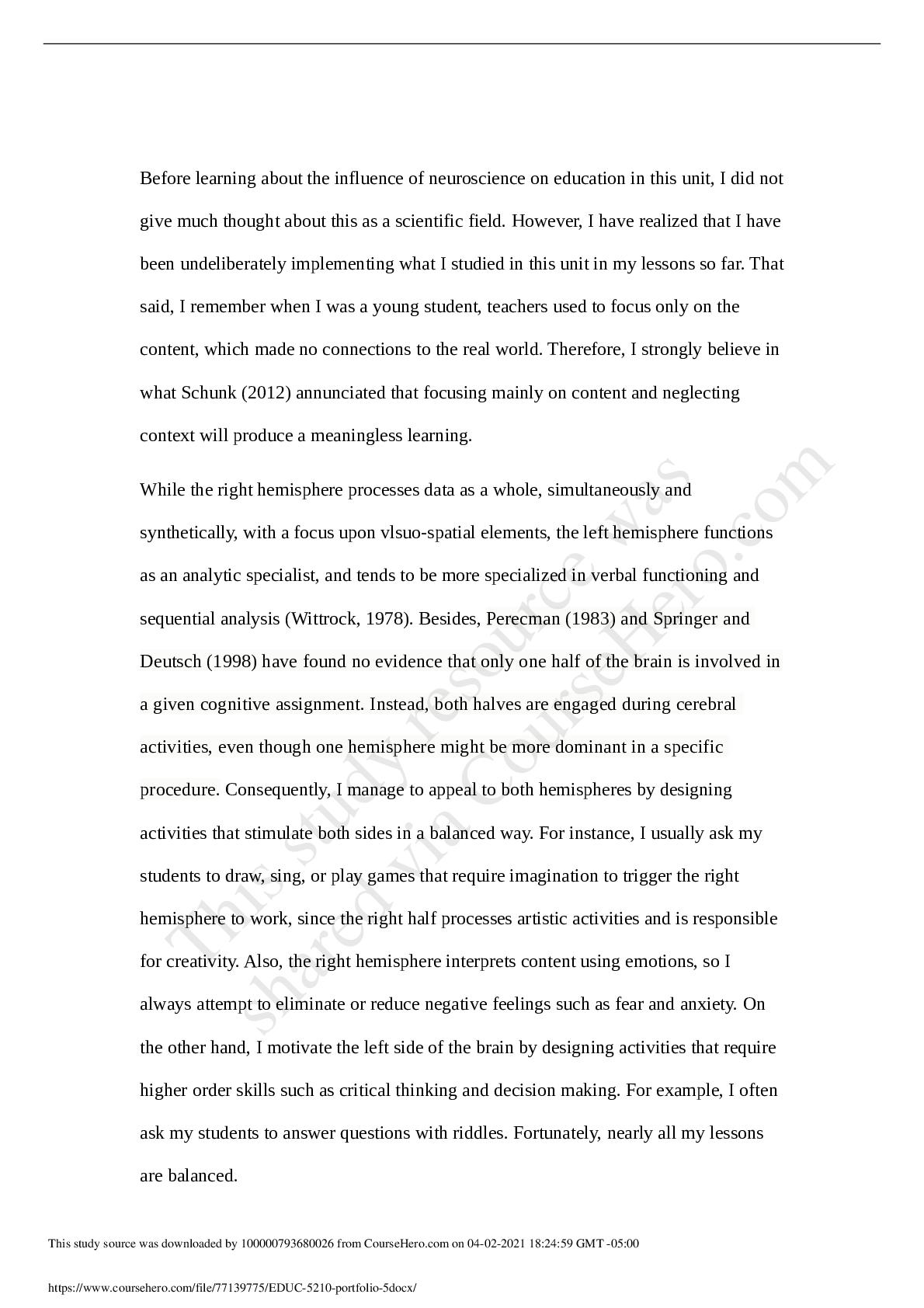Education > DISCUSSION POST > University of the People - EDUC 5210Educ 5210 - WA 2(2021) (All)
University of the People - EDUC 5210Educ 5210 - WA 2(2021)
Document Content and Description Below
Gagne’s 9 events of instructions: Behaviorist or Cognitivist? Anonymous University of the People EDUC 5210: LEARNING THEORY AND IMPLICATIONS FOR INSTRUCTION Dr. Scott Migdalski February 8, 2021... This study source was downloaded by 100000793680026 from CourseHero.com on 04-02-2021 18:14:49 GMT -05:00 https://www.coursehero.com/file/82600645/Educ-5210-WA-2docx/ This study resource was shared via CourseHero.comGagne’s 9 events of instruction: Behaviorist or Cognitivist? 2 Gagne formulated a structured way to approach the design of instruction and is developed based on the knowledge of how individuals process information, hence determining learning conditions that are vital to human learning that improve overall understanding of instruction presented by educators (Mallow, 2016). He then proceeds to propose that there are 9 critical events that must be present for effective knowledge retention and absorption to occur (Pappas, 2015), namely: gain attention; state objectives; stimulate recall; present material; provide guidance; elicit performance; provide feedback; assess performance; and enhance transfer (Berkeley Lab, n.d.) with that in mind, this paper aims to analyze each step and determine whether it is based on behaviorism or cognitive psychology. According to Schunk (2012), behaviorism examines phenomena that are observable and measurable and that conditioning theories not only deals with behavior, rather they explain the acquisition of knowledge through events observed in the student’s learning environment. On the other hand, cognitive psychology defines learning as the process of forming associations between responses and stimuli which help facilitate their acquisition and recall, to ultimately be able to relate new information to past knowledge and organize it in a meaningful way (Schunk, 2012). With that in mind, the first event is to gain attention or priming, wherein students are given lesson related activities that aim to capture their attention by using motivating stimuli (Northern Illinois University, n.d.), which illustrates a behaviorist approach because students are responding to a stimuli or a change in their environment and Schunk (2012) states that behavioral theorists view learning as a change in behavior or responses and involves that formation of association between stimuli and response. For instance, in preparation for a lesson on dental hygiene, the teacher plays a song about brushing teeth and brings out a toothbrush, [Show More]
Last updated: 1 year ago
Preview 1 out of 7 pages
Instant download

Buy this document to get the full access instantly
Instant Download Access after purchase
Add to cartInstant download
Reviews( 0 )
Document information
Connected school, study & course
About the document
Uploaded On
Apr 03, 2021
Number of pages
7
Written in
Additional information
This document has been written for:
Uploaded
Apr 03, 2021
Downloads
0
Views
46


